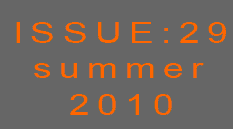
Word from the President

|
On 24 June, NucNet, the global nuclear news service, organised a seminar on the occasion of its twentieth anniversary. The event ran back to back with its General Assembly. The service that NucNet provides for the wider nuclear community and the public at large is vitally important in today’s fast-evolving nuclear scenario. Increasing public |
acceptance of nuclear energy is a priority and NucNet plays a vital front-line role in supporting that objective. But it wasn’t always as clear and simple as that.
After the accident at Three Mile Island in 1979, and the Chernobyl disaster in 1986, the nuclear energy industry adopted a somewhat passive and defensive attitude towards the media. Against a backdrop of enormous anti-nuclear feeling among politicians and the general public the industry was afraid of reporting even a small incident for fear it would engender further enormous criticism in the media. It thought it would be better not to say anything at all, as this was deemed a safer, no risk strategy. The nuclear industry in those days was almost a closed community. And a news vacuum did it no favours.
From this came the idea – first discussed 20 years ago in Switzerland and backed from the very beginning by the European Nuclear Society – to have a network of reliable correspondents around the world that could make sure that news and information about the nuclear industry was accurate and provided quickly and in a language that everybody could understand. That was how the nuclear communications network NucNet was born and since then NucNet has since established itself as a reliable and essential source of information on the global nuclear industry and the energy policy scene. At NucNet’s 20th anniversary seminar the main message articulated was that communications in the nuclear industry has never been more important than it is today.
Times have changed, of course. NucNet is renewing itself and evolving. People say that there is already more than enough news available via the Internet. But the Internet is sometimes far from reliable and the point of NucNet is that it only publishes news and information that has been verified at the source. NucNet is needed now more than ever because it understands the industry and understands that information is crucial for public confidence.
NucNet covers news 24 hours a day, seven days a week, but focuses particularly on safety and security information that completes and complements information exchange systems established by the industry itself and by the authorities. I am talking here about WANO, INES, the Vienna Convention and so on.
In short, NucNet has developed into a global, independent, non-profit association, with network members in every country having a nuclear energy programme. But the general aim remains the same. NucNet will always be about accurate information and a network of professionals who help generate, share and use that information. We in the nuclear community are all part of that network and we can all play a part in seeing it continue to thrive. Whatever level of work we do within industry or research, it is vital that all of us contribute to the flow of accurate information about our industry.
I would like to congratulate NucNet for twenty years of excellent service to the nuclear community and wish them all the very best for the next twenty years!
Vladimir Slugen
President of ENS
|

